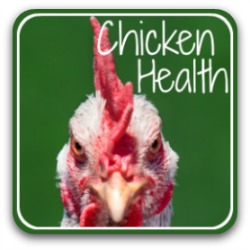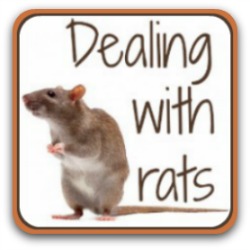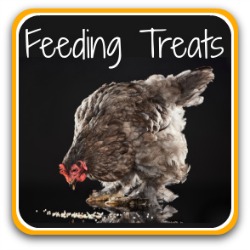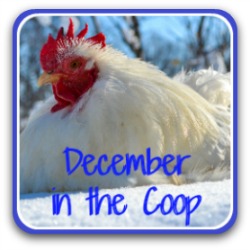Facts about the raccoon: how to stop your flock being killed by this super-predator.
Raccoons may look cute but they're vicious killers. Here are facts about their behaviour and 14 tips to help protect your chickens from attack.
As with any wild animal, I advocate starting with tolerance, learning facts about how the problems begin and practicing prevention.
It's always a good idea to understand something about predator behaviour in order to deal with the problem effectively.
But if you want to skip straight to information about how to prevent raccoons killing your flock, here's a quick link.
Some people keep them as pets. Their masked face commonly gets them the cute title "bandit". But raccoons, - procyon lotor - are one of chickens' deadliest predators.
We're fortunate not to have raccoons in Italy. But from chicken-keepers in other parts of Europe and in the States, I know how deadly they can be.
Raccoons will rarely eat a whole adult chicken. But if you find your flock killed and most of the body left, it's likely to be one of two culprits: a member of the weasel family, or a raccoon.
To be able properly to protect your chickens, it's important to know the signs of a raccoon presence.
Here's how you can use facts about the raccoon to understand how to protect your chickens.
Raccoon facts: how to tell if you have a family nearby.
You're most likely to see raccoons during the late summer and autumn (fall). Baby raccoons, known as cubs or kits, who are born in the spring are weaned by summer. They're gaining their independence and looking for a territory of their own.
And all ages are stocking up on food reserves to see them through their winter semi-hibernation.
But there are signs of raccoons all year round. Here's how to tell.
Listen for raccoon sounds.
One of the simplest ways to tell whether you have any animal living nearby is to listen for their call. Raccoons are easily distinguishable. They're one of the most vocal predators and have a number of sounds.
Listen for them from dusk, which is when they do most of their hunting.
This is the most common raccoon sound: a kind of high-pitched chattering noise.
And here's the sound of an angry raccoon - a very different, low-pitched growling.
Look out for raccoon tracks.
 Raccoon tracks - very like a human hand.
Raccoon tracks - very like a human hand.Raccoon tracks are distinctive. They walk on their whole paw, so their prints are very like a hand: five long digits with a claw at the end.
Front and back tracks are exactly the same.
These digits are one of the raccoon's characteristics that make them particularly deadly for chickens.
The long, dextrous "fingers" and a separate thumb make them easily able to hold and open locks and latches.
The claws are razor-sharp knives and the whole hand is so sensitive that the raccoon uses them to "see" objects just by feeling them.
Watch for scat.
The raccoon's droppings aren't as pungent as the fox's. It's generally about ¾" in diameter and between two and three inches long, blunt at both ends.
The danger of scat for both chickens and humans is that it often contains roundworm. If you find a raccoon scat "station" - a place where a lot of scat has been left - it should be cleared by a hazardous waste expert due to the amount of roundworm likely to be present.
Unfortunately, in urban areas where raccoons have established themselves, those "stations" (also called "latrines") are often found in houses, particularly in attics.
Where do raccoons live? Look up!
Once a dweller of forests close to water, the raccoon will now make their home - called a den - almost anywhere food is freely available. And as they eat more or less anything, that means cities as well as rural areas.
Their preferred habitat, especially in spring when they have baby cubs, is a tree hole or rock crevice. They're opportunistic animals so if they can't find something suitable, they'll use whatever else comes to hand.
 Excellent climbers, the raccoon's preferred habitat is a tree.
Excellent climbers, the raccoon's preferred habitat is a tree.Burrows other animals have left, and dense undergrowth should all else fail, works for the rural raccoon. For the suburb or city dweller, attics are a favourite. But barns, spaces under a deck or even an abandoned car will do if attics are impenetrable.
Raccoons hunt at night. During the day, they'll rest in the hollows of trees, and will look for trees to climb when threatened. So if you hear or see other signs, look up - especially in the branches of oak trees.
Raccoon facts: what do they eat?
Camouflaged by their coat, raccoons generally hunt at night although in urban areas they've been known to scavenge during daylight hours. And they're omnivores: they will eat more or less anything.
In the wild, the raccoon is an excellent hunter of water-based food: frogs, crayfish, whatever they can find. They combine the ability to see at night with lightning-quick paw movement to prove a lethal aquatic killer.
 Raccoons are excellent hunters in water as well as on land.
Raccoons are excellent hunters in water as well as on land.On land, the raccoon will alter its diet depending on the season. In autumn (fall) the preferred meal will be fruit and nuts, which help build up the fat necessary for winter hibernation.
In spring and summer, though, the raccoon will enjoy meat in the form of insects, worms and rodents - and baby chicks if they can find them. They're also excellent at seeking out eggs.
Adult chickens are generally too large for a raccoon to carry off. So while it will eat the head and crop, the body tends to be left behind.
In urban areas they're attracted by human food, so keeping waste food in insecure containers will attract them. Bins (garbage cans) are no protection: the raccoon's nimble fingers will easily remove lids(1).
Raccoon facts: disease.
We've already seen that raccoons carry roundworm in their droppings which can be picked up and eaten by your chickens, infecting your flock in a very short period of time. It's also a risk for humans, particularly if your children play in an area where raccoons have invaded.
And importantly, raccoons are also considered to be a primary carrier of the rabies virus in the United States. Even though your chickens won't catch rabies from a raccoon and only one person is known to have died from a raccoon to human transmission of rabies(2), it's not a risk you should take.
How the raccoon finds chickens.
- Raccoons are smart and curious. Studies have proved that they can remember the solutions to problems for at least three years(3). So they're going to remember where your chickens hang out.
- If you've had a raccoon once, be assured - he will be back!
 This is what you do not want to see asleep in your chicken coop!
This is what you do not want to see asleep in your chicken coop!- Attracted by food but quite lazy in the way they get it, raccoons will work out the easiest way to a tasty meal. Whether that's eggs left in your nesting boxes, feed in insecure containers or baby chicks left outside before they should be, the raccoon will work it out.
- They use their sense of smell to track food. Feeders left outside will attract them, even if your chickens are safely locked away.
- Raccoons can run at speeds up to 24 kilometres per hour (15 miles per hour) and fall up to 12 metres (40 feet) without injuring themselves. However well you think you've protected your run, they will find a way in or over if they can.
- They're dexterous and driven. Simple latches are easily undone; even complex locks can be picked within minutes.
 The raccoon's fingers, like a human hand, are easily able to pick locks.
The raccoon's fingers, like a human hand, are easily able to pick locks.How do these facts about raccoons help protect chickens from harm?
Please note: there are ways of living alongside wild animals that don't involve either killing or relocating. They are the solutions I use with my chickens.
In any event, abandoned dens will be rediscovered by other raccoons. And in some parts of the US it is illegal to either kill or relocate raccoons. Check your own area before taking any action.
Once you understand something about the raccoon's behaviour and characteristics, it's not hard to work out what needs to happen to protect your chickens.
There are two key areas: preventing entry, and avoiding attracting them in the first place.
Don't keep raccoons as pets!
Some people keep raccoons as pets. It's not advised by wildlife experts - the raccoon is not a domesticated species and, as we've seen, can carry disease.
If your neighbours have them as pets, or if they regularly feed them, ask them (politely) not to. Explain the damage they can do not only to chickens but to humans.
And if you see a wild raccoon, never try to corner it. Like any cornered animal, it can become vicious in its attempt to defend itself.
 Baby raccoons may look cute, but they learn to climb and kill very quickly.
Baby raccoons may look cute, but they learn to climb and kill very quickly.Stop attracting unwanted raccoon guests!
Links in this section are "affiliate links", which means that if you click and buy something, I earn a small commission at no extra cost to you.
Because raccoons are opportunistic feeders, the main method of controlling them is by shutting down the source of food. Once they no longer have a tasty take-away, they'll lose interest.
- First and most important action: protect your feed! Raccoons are large and strong. They have no problem opening even heavy container lids. The dark is no protection - they use the feeling sensations in their hands to "see" the problem - and solve it.
- So use a galvanised storage bin with a tight fitting lid, and add a bungee for more security. A brick or stone on top of the lid won't be enough - a raccoon will remove it in seconds. Something like this is ideal - it has a locking lid.
- Don't use an open feeder for your chickens' daily food. A good quality treadle feeder works - see my review of the best on the market. To be extra sure, if you know you have raccoons in your area place a brick underneath the treadle panel at night to stop the lid opening.
- If you have seed for wild birds, either only put out what the birds will eat during the day, or bring the containers in at dusk. And remember - wild birds can carry avian influenza (bird flu).
- Collect eggs regularly - twice a day minimum when hens are laying at their peak in summer.
- Protect chicks. Don't put them outside before they're ready. If they are outside, make sure they roost before dusk. Raccoons love feasting on baby birds.
- We've seen that raccoons also hunt in water. So if you have a fishpond, cover it with netting.
- In suburban and urban areas, make sure your rubbish (garbage) is kept in sealed bins.
Prevent entry.
- Firstly and most importantly - because this is an error I see made time after time - chicken wire will not keep raccoons out!
- Take a look at this video of a raccoon breaking into a chicken run, and see how easily he made a hole in the wire.
- Use "hardware cloth" or strong chain-link fencing - raccoons are too big to squeeze through the holes. Make it at least 6 feet high and bury it at least 18" underground.
- Although they're large, raccoons can squish their spines to shimmy under small spaces. Add an "L" shaped panel to the bottom of the fence, buried a couple of inches below ground and covered with earth to prevent digging.
- Don't rely on a sliding bolt or a simple latch. A raccoon will open that in minutes. Numerous studies have shown they can open even complex locks(3). Use a strong padlock openable only with a key or code (even raccoons can't work out numbers!).
- Using a motion detector light at night is a possibility, although raccoons will quickly become used to and ignore it.
- And finally, make sure you protect your home as well as your chicken coop and run. Take the same precautions to keep raccoons out of attics, barns, and crawl spaces underneath decks and porches.
Remember: however cute he may look, the raccoon is not your friend!

The best book about chicken predators.
Gail Damerow's "What's Killing my Chickens?" – my book review.
If you have predators but you're not sure what, I highly recommend Gail Damerow's "Poultry Predator Detective Manual".
Written specifically with the backyard chicken keeper in mind, its aim is to help us follow the clues which allow us to work out which predators we have.
She then discusses best ways of protecting against each group (raptors, dog family, raccoon family, weasel family etc) to keep our flocks safe.
Even if you don't have predators, it's a fascinating insight.
Some other pages about how to keep your chickens safe.
Sources.
A lot of "facts" you'll find on the internet are often people's individual views, based on inaccurate information repeated from poor quality sources.
The information I provide in this article and others is based not just on my own experience, but on evidenced facts from scientific, peer-reviewed research and books from highly respected and experienced poultry keepers such as Gail Damerow.
Some of the trusted sources I have used in this article are these.
1. Galef, B. and Giraldeau, L: Social influences on foraging in vertebrates. Pub. Journal of Animal Behaviour, 2001.
2. Center for Disease Control and Prevention: Rabies - a Forgotten Killer. Pub. 2019.
3. Davis, H: The Raccoon: A Study in Animal Intelligence. Pub. American Journal of Psychology, 1907.
4. Damerow, G: What's Killing My Chickens? Pub. Storey, 2019.

















